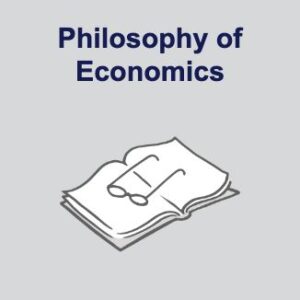
- This project has passed.
The 6th PE-DPS: Birsen Filip on neo-liberalism and the decline of freedom
Phil Econ Discussion and Presentation Series
Start time:
September 23, 2021 @ 2:00 pm - 3:00 pm
EDT
Location:
Online
Type:
Other

Description
THIS SESSION FEATURES OUR GUEST BIRSEN FILIP
who will present her recently authored book The Rise of Neo-liberalism and the Decline of Freedom (Palgrave Macmillan, 2020)
Date: September 23rd, 2021, at 4pm CET
The session, features a presentation of 20 min delivered by Birsen Filip followed by a Q&A.
Excerpt from the book’s Introduction:
“This book claims that the neo-liberal concept of freedom is detrimental for civilization, and the future of the earth. This is due in part to the fact that theorists of neo-liberal economics formulated a minimal form of comcept of freedom, because they worshiped freedom for its instrumental value, and primarily used it to promote the global implementation of free-market economics over centrally-planned economies. They have used this conception of freedom to defend the spontaneous order against artifcial order, negative freedom against positive freedom, and a limited state role against a paternalistic state. Advocates of neo-liberalism do not particularly care about the spread of genuine freedom or the conditions needed to achieve it. In actuality, the conception of freedom formulated and defended by neo-liberals represents a regression in the development and practice of freedom, because it only supports freedom for the few, treats freedom as a private matter, and downplays the importance of the state in the achieving the of conditions of freedom.”
MAIN QUESTIONS UP FOR DISCUSSION, KINDLY PROPOSED BY THE AUTHOR:
-
What role should the state play in achieving the conditions of freedom?
-
Is it possible to integrate new habits, ways of thinking, and lifestyles into people so that their decisions and actions are guided by ethical considerations instead of economic motives after four decades of being indoctrination by the principles, reasoning and values of neo-liberalism?
-
Many mainstream economists facilitated the spread of neo-liberalism by defending methodological monism, advanced mathematical modelling, the universality of their principles and models, and the notion that economics is a value free science. If we believe in methodological pluralism and historical ethical economics, would it be logical to accept a paradigm shift where global governance represents the new paradigm? Moreover, would global governance destroy what is left of our diverse lifestyles, cultures, values, freedoms, and identities?
ABOUT THE AUTHOR
Birsen Filip holds a Ph.D. in philosophy and master’s degrees in economics and philosophy. She has published numerous articles and chapters on a range of topics, including political philosophy, geo-politics, and the history of economic thought, with a focus on the Austrian School of Economics and the German Historical School of Economics.
Hosted by Working Group(s):
Organizers
Attendees
Diana Soeiro
Tarun Gidwani
Sattwick Dey Biswas
Samyak Jain
Senthil Kumar
Raul Zambrano
Zach Kopelman
Laura Ortiz
Oindrilla Seal
Merve Burnazoglu
Nicoletta Montaner
Khiangte Vanlalhruaitluanga
Zachary Gehan
Angshuman Sarma
Renuka Bhat
Toru Yamamori
Antonio Galindo
Muez Ali
Sangeeth Varma
Jay Pocklington
Birsen Filip
Keir Dolan
Oscar Garza Vázquez